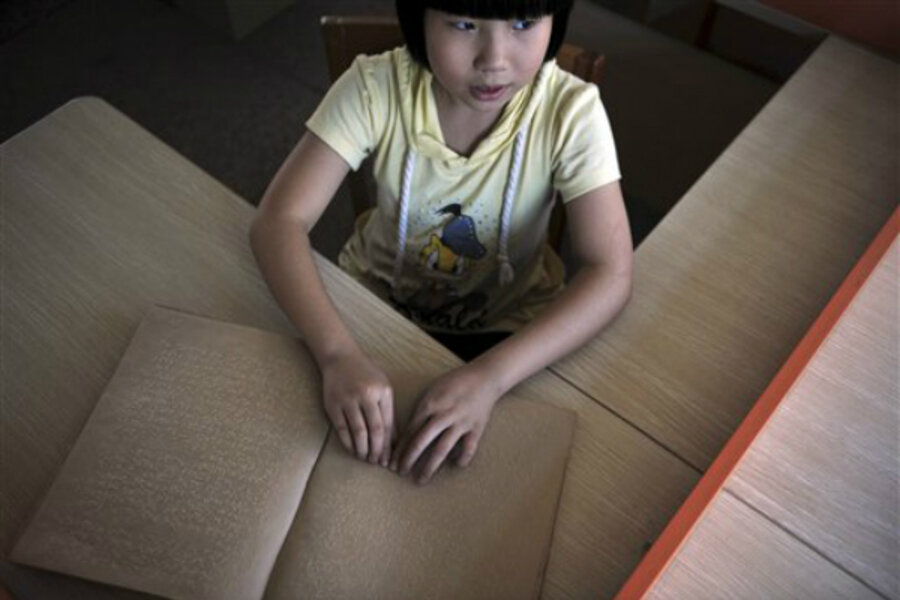China discriminates against disabled children, report says
Loading...
| Beijing
More than a quarter of Chinese children with disabilities don't get to go to school, while many of those who do are blocked from mainstream institutions or taught by untrained teachers, a human rights group said.
The report released Tuesday by New York-based Human Rights Watch said Chinese students with disabilities are denied access to regular schools unless they can prove they can adapt to the schools' physical and learning environment, and that accommodations for such students are "little to none."
In one example, the group said a mother went to school several times a day to carry her child up and down stairs because the restroom was on a different floor from the classroom.
The report sheds light on how China's burgeoning problem of social inequality – even in education – applies to people with disabilities. In China, there is only a nascent public awareness of the issues that people with disabilities face.
Prejudice and social stigma run high in this deeply competitive society, driving many parents to abandon children with disabilities to China's chronically underfunded state orphanage system.
Just days before the Human Rights Watch report was released, China's Education Ministry issued its own report on the same topic.
The ministry's report said that 28 percent of Chinese children with disabilities are not enrolled in China's compulsory nine-year education. But it said the 72 percent enrollment rate represented a jump of nearly 10 percentage points from 2008, and that an increasing number of disabled students were in regular schools with proper accommodations.
Maya Wang, a researcher for the rights group, said the ministry's report failed to show how it was making mainstream schools more accessible to disabled students, as the government is obligated to do under an international treaty on the rights of disabled people that Beijing ratified in 2008.
Yang Zhanqing, an independent advocate for people with disabilities, said the HRW report is "quite objective" but that the picture would be worse if interviewees from remote, mountainous regions were included in the research.
Another activist had harsher words on the overall situation.
"No Chinese student with disabilities has his or her rights fully protected," said Cheng Yuan of the non-governmental agency Ganzhilu, which helps people with disabilities.
In its report, the Education Ministry said both central and local governments have pumped funding into special education. Of all 378,800 students with disabilities in Chinese schools, more than half are in regular schools with necessary accommodations, including home tutoring, the ministry said.
It said schools in at least three major eastern cities are banned from turning away any student with disabilities.
However, Human Rights Watch said the reality was different. Despite government policies ensuring access for children with disabilities, many of them have in practice been denied admission to mainstream schools or pressured to leave, the report said. Often, teachers have received little training to adjust to the needs of children with disabilities, it said.
Human Rights Watch also said those who are bright enough for higher education are often denied admission under guidelines set up by the government. The guidelines advise universities of the types of "physiological defects" and "illnesses" that make a person "unable to take care of themselves or complete their studies."
The ministry said school programs take into account the students' physical capabilities as well as market needs.
Human Rights Watch said its report was based on more than 60 interviews with children and young people with disabilities and their parents.







